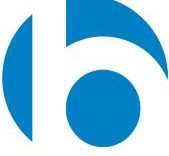
by Guest Blogger – Brooke St Clair
What proportion of your business is won through tenders? Do you know or measure this statistic, or even have an internal benchmark for this?
In answering this question some organisations may set a really high benchmark for the proportion of work that is won through tenders. While winning a large proportion of the work that you bid for is a good indication of your ability to prepare quality submissions and deliver good work, I would suggest an even greater indicator of your performance as a business is the proportion of your work that is won through sole sourced arrangements.
Sole sourced arrangements are ideal for your business, not only because they save you the time and expense of preparing a submission (which in reality you only have a small chance of winning), but also because they allow you to collaborate with the client in defining the problem they are facing and helping to design the solution with the key decision makers in the business.
Obviously there is some work in the marketplace that as result of legislative or policy requirements, or simply because of the nature of the work, requires organisations to go out to tender to select their provider. However in the absence of these requirements, a lot of companies would choose to avoid the time, paperwork, expense and uncertainties involved in approaching the market through a tender, and undertake a sole sourced arrangement with a company they trust to deliver the work to a high standard and provide value for money outcomes.
Sole sourced arrangements are a win/win for both parties, saving the time and expense involved in participating in a robust procurement process. But the question is how do you generate sole source approaches by clients?
The key is delivering to clients when you are given the opportunity to work together, whether through a procurement process or otherwise. It is also critical in delivering to these clients to differentiate yourself from all the other providers they have worked with in the past, so that the next time a similar job arises, they only want to approach you.
In our experience there are a number of key ways that you can differentiate yourself from other organisations:
Seek to exceed expectations for the client. You can do this by being generous with your time and not being afraid to give away documentation that will assist your client in achieving their objective. The notion of giving away Intellectual Property may be scary for some firms but at BRS we have found this simple idea to be instrumental in differentiating ourselves from our competitors and delivering true value to our clients.
Focus on building relationships and trust with your clients. What is critical is really listening to your clients to understand their objectives and not being afraid to have frank and fearless conversations with them upfront to ensure you understand their needs and wants and are clear about what they want to achieve. Another critical element is in ensuring that there is an alignment in values between your company and the client because without this alignment there is a strong possibility that relationship issues will evolve as you work together and disagreements occur. What is important for your company is identifying this misalignment upfront and politely declining to do the work, which can be very difficult in tough economic times. However there is nothing worse for the ability of your company to get sole sourced work than a client out in the marketplace who is not entirely happy with your performance and painting your company in a less than positive light.
Develop the capability of the client by focusing on educating not selling. The focus of BRS is on educating our clients, rather than pushing hard to sell our services. We do this by providing regular opportunities for them to learn from our experiences, through our blogs, magazine articles and regular educational breakfasts. In educating your clients in this manner they become more aware of the breadth of your skills and capabilities through experiencing it, rather than by you telling them about it.
Have a genuine concern for the problems that your clients are facing. If you are not sincere they will see it and it will reflect in the quality of work that you provide back to them. This is also about not being afraid to tell your clients the kind truth, which in many cases may be something that they don’t want to hear, but is something they need to hear in order to be able to achieve their long term objectives.
Seek regular feedback on your performance with the client. The important element here is not only to seek this feedback on whether you are delivering to, and hopefully exceeding the clients expectations but also to act on the feedback and adjust your approach and behaviours when required. Often a lack of communication is the reason for misalignment between what the client expects and what you are delivering. By having continuous discussions on how you are tracking with the work you are delivering, you will hopefully avoid this situation and any minor issues can be rectified before they become big problems.
BRS have implemented these approaches in the way we do business with our clients and in doing so have transformed the manner in which we win work. When the business first started over 60% of our work was won through tenders. Over the past three years this number has progressively shrunk to a point where now under 20% of our work that is won through tenders, the rest is sole sourced. The amount of time and expense this has saved our company participating in tender processes means we can focus even more time on delivering quality outcomes to our clients.
Consider developing your business strategy to encourage more sole sourced engagements, your bid team and your bottom line will thank you for it!



